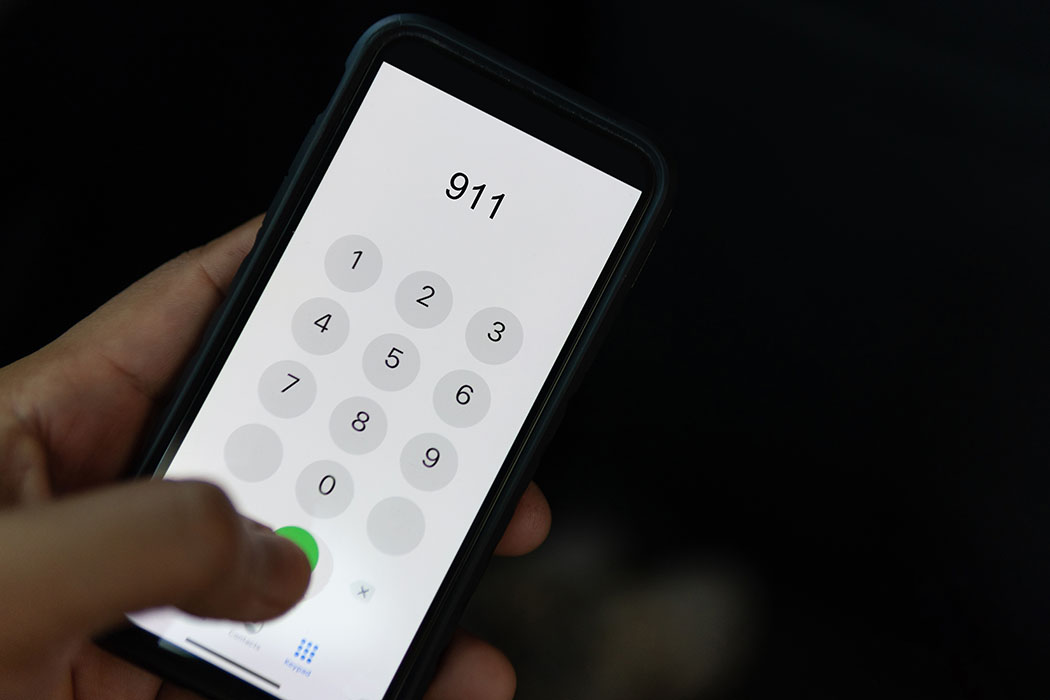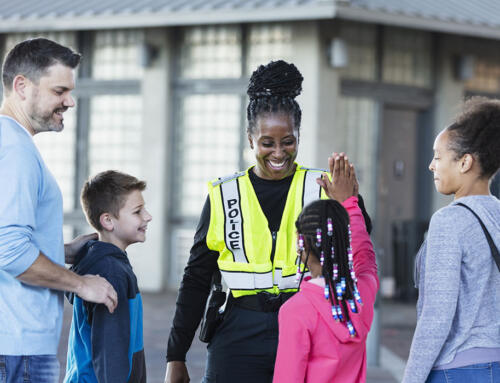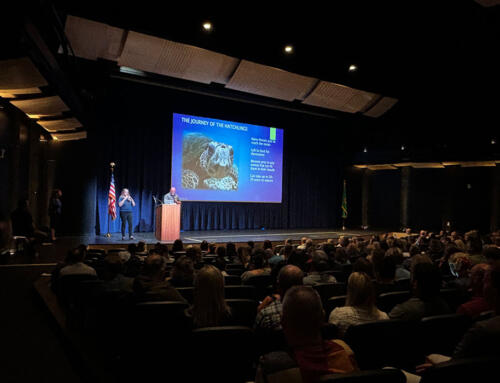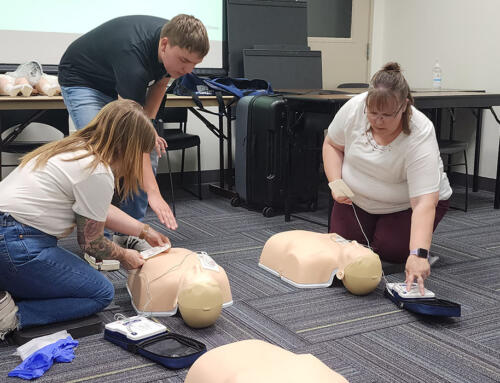An estimated 240 million calls are made to 911 each year in the United States. 911 dispatchers and call takers are trained to help with all types of situations. But there are certain steps you can take to help inform the call taker of the emergency and ensure help arrives as fast as possible. Every second counts during an emergency. Follow these tips from the National Emergency Number Association (NENA) when you need to call 911.
UNDERSTAND WHEN TO CALL 911 (AND WHEN NOT TO CALL)
Have you ever wondered whether to call 9-1-1? Since 9-1-1 is for emergencies only, it helps to understand when to call and when not to call. An emergency is any serious situation where a law enforcement officer, fire fighter, or emergency medical help is needed right away. If you are unsure of whether your situation is an emergency, go ahead and call 9-1-1. The 9-1-1 call taker can determine if you need emergency assistance and can route you to the correct location. However, there are some common scenarios that don’t warrant a 911 call, such as when someone needs information (call 211 instead) or is experiencing a power outage.
IF YOU DO CALL 9-1-1, EVEN BY MISTAKE, DO NOT HANG UP THE PHONE
9-1-1 call takers are trained to get the most important information as quickly as possible to get help on the way to an emergency. In an emergency, allow the call taker to ask you all the questions they need in order to get help there in the timeliest manner before you hang up or leave the phone. If you happen to call by accident, stay on the line until you can tell the call taker that you called by accident and there is no emergency. This saves the call taker from having to call you back and confirm there is no emergency or possibly sending police with lights and sirens to check your address for an emergency.
WHEN CALLING 9-1-1 DO YOUR BEST TO STAY CALM AND ANSWER ALL QUESTIONS
Staying calm can be one of the most difficult, yet most important, things you do when calling 9-1-1. It is very important that you stay as calm as possible and answer all the questions the 9-1-1 call taker asks. The questions 9-1-1 call takers ask, no matter how relevant they seem, are important in helping get the first responders to you as fast as possible.
HELP THE 9-1-1 CALL TAKER HELP YOU
Listen and answer the questions asked. By doing this, it helps the call taker understand your situation and will assist you with your emergency until the appropriate police, fire or medical units arrive.
KNOW THE LOCATION OF THE EMERGENCY
The wireless 9-1-1 caller must be aware that the 9-1-1 center that answers the call may not be the 9-1-1 center that services the area that the wireless caller is calling from. Look for landmarks, cross street signs and buildings. Know the name of the city or county you are in. Knowing the location is vital to getting the appropriate police, fire or EMS units to respond. Providing an accurate address is critically important when making a wireless 9-1-1 call.
TEACH YOUR CHILDREN HOW TO CALL 9-1-1
Be sure they know what 9-1-1 is, how to dial from your home and cell phone, and to trust the 9-1-1 call taker. Make sure your child is physically able to reach at least one phone in your home. When calling 9-1-1 your child needs to know their name, parent’s name, telephone number, and most importantly their address. Tell them to answer all the call takers questions and to stay on the phone until instructed to hang up.
PRANK CALLS TO 9-1-1 WASTE TIME
These calls waste valuable time and can prevent others from receiving timely help. Be sure all members of your household are aware that prank or harassing calls to 9-1-1 will be dealt with by local law enforcement agencies.
POST YOUR ADDRESS CLEARLY AND PROMINENTLY AT YOUR ENTRANCE AND ON YOUR HOME
Posting your 9-1-1 address at the driveway entrance and on your home will alleviate any confusion as to whether emergency responders have the correct location. Try using something reflective or illuminated so that it can be seen in the evening as well as during the day.
KNOW THE PHONES YOU OWN
Educate everyone about the phone system in your home as well as your cell phone. Children may need to use the devices in an emergency and will need to know how to operate them.





 ESD 112 equalizes educational opportunities for learning communities through innovative partnerships, responsive leadership, and exceptional programs.
ESD 112 equalizes educational opportunities for learning communities through innovative partnerships, responsive leadership, and exceptional programs.